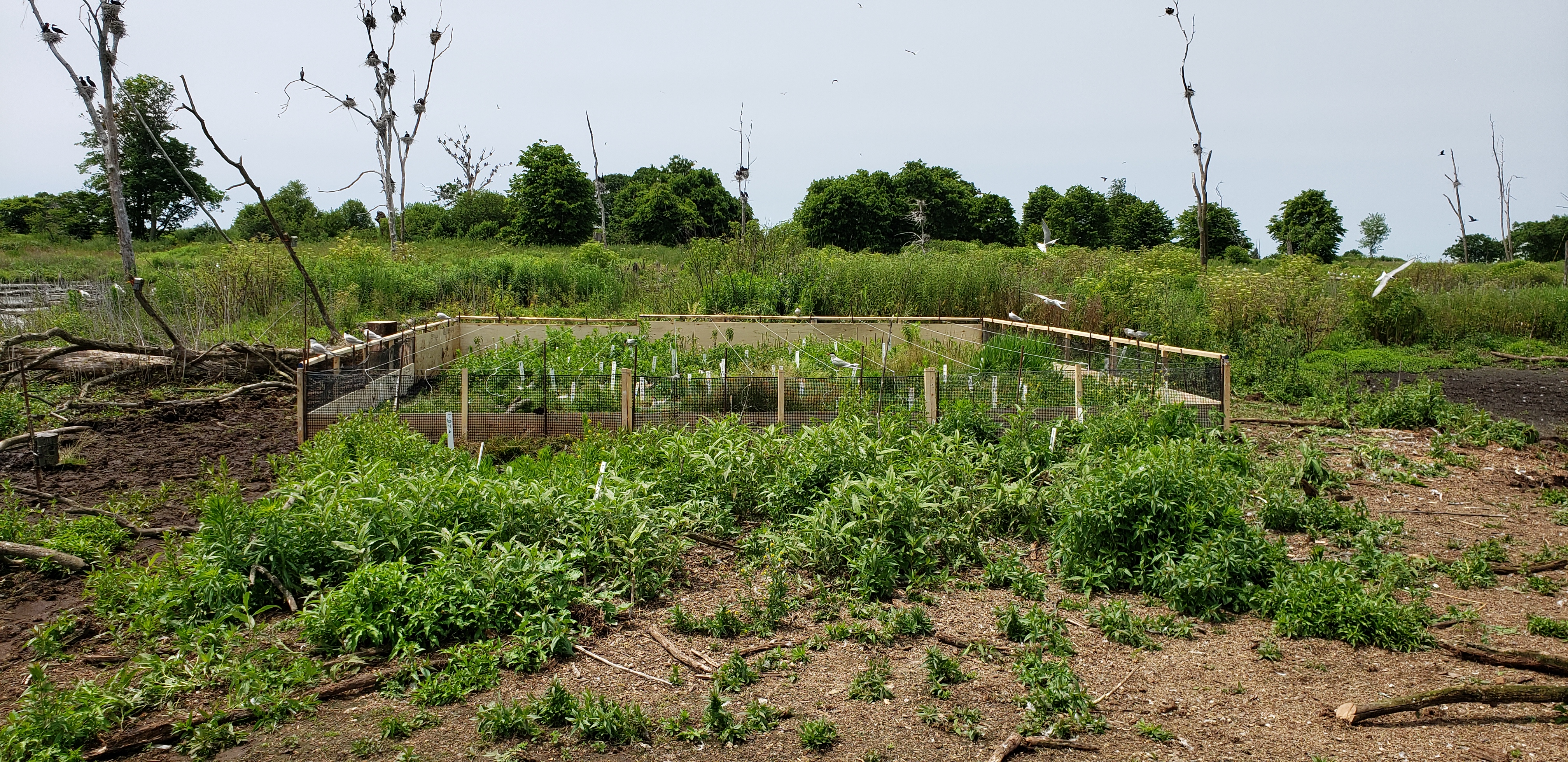
Jennifer Arnold and Steve Oswald, from Penn State University, have been undertaking research on Presqu'ile’s Common Tern population since 2008, with financial assistance from the Friends of Presqu'ile Park.
Although they are not yet able to travel to Canada this year, Jennifer and Steve have set in motion a plan to keep the Common Tern research and management going, so they can protect the terns and continue their long-term database.
They have been working with Don Tyerman, Presqu'ile Provincial Park’s Biodiversity Specialist, and his crew, who have set up and are maintaining the predator exclusion grids on the islands with their guidance. The terns have just begun laying and are once again showing strong interest in the grids. This is excellent news because this style of exclusion grid successfully protected them last year and there are now two in place.

Predator exclusion grid on High Bluff Island (Photo: Ontario Parks)
Jennifer and Steve hope to be able to travel to Canada for short trips this summer for this research. They plan to band adults and their chicks to maintain the12-year database they now have for Presqu'ile's terns. This is the most comprehensive database for Common Terns in inland North America and is a central resource to address population declines of this species. They also plan to continue to deploy miniature tracking devices on adult terns to study their use of the park and its surrounding waters.
Their study of sleep behavior in terns (the first article was published in the journal Waterbirds this month) shows that Presqu'ile's Common Terns are not sleeping at the nest during the day or the night. This indicates that sleep at roosts must be important or else birds may be very sleep deprived (which could have all kinds of implications for breeding and longevity.) They have already learned a lot about tern roosting patterns from tracking their movements, so they plan, with Don’s collaboration, to observe roosting behaviors this summer.
Jennifer and Steve are hopeful that the strong collaboration with the park’s Biodiversity Team will allow this important management and research to continue despite the global pandemic, and thus facilitate another successful breeding season for Presqu'ile's terns and continue to lay a strong foundation for protecting the Common Tern in inland Canada.
(You can watch a video and read about more about the results of Jennifer and Steven's work on the Research page of our website here.)


